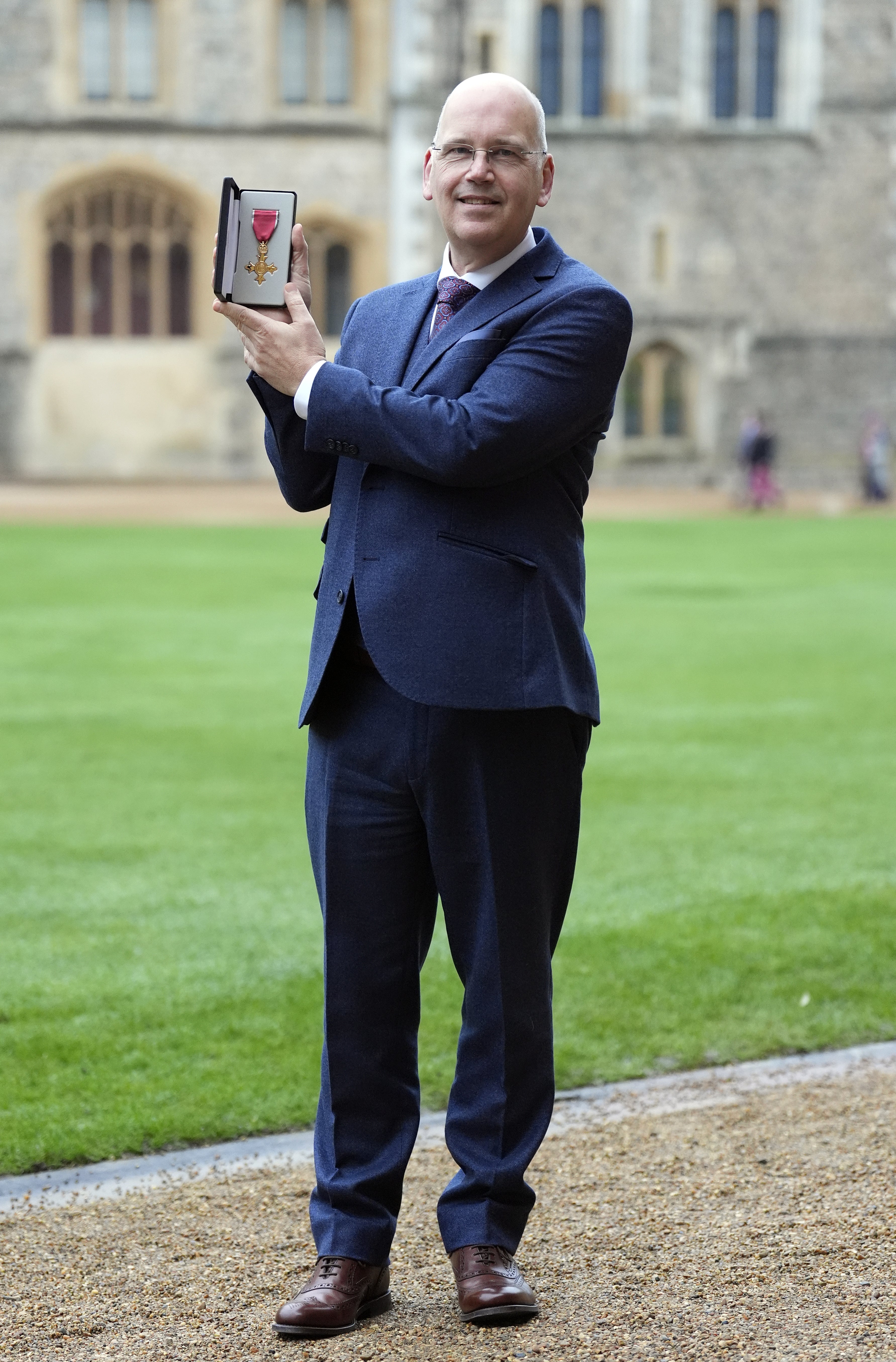
An engineer who pioneered space communications in the UK has said Artificial Intelligence is to become a “real helper” of humanity in the years to come.
Ian Jones is the founder and chief executive of the Goonhilly Earth Station Limited, the world’s first private “deep space operator”, which helps organisations like Nasa and ESA, as well as some private companies, to communicate with their space crafts in deep space – all from the Goonhilly Downs site near Helston, Cornwall.

The 62-year-old engineer, who was made an OBE during an investiture ceremony at Windsor Castle on Wednesday for “services to Space Communications”, said the UK should look more into the benefits AI can bring the country, its people and its economy, as he himself is moving into the field.
Speaking after the ceremony, Mr Jones said: “It’s really astonishing what’s happening in AI now.”
Commenting on Sir Keir Starmer’s announcement earlier this week that the Government has plans to make the UK an AI “superpower”, Mr Jones said: “I think that in the UK, we’ve been looking at the potential problems that AI could bring.
“Actually, the lens that we should be looking through is what benefits we can get from AI.
“It’s using the knowledge that AI has.
“AI by now has read every book and has read every page on the internet, and so, it has the ability to really help and inform us, to move more quickly, and to use that capability to get ahead – and to help others to get ahead.”
He added: “I think it’s going to be a real helper.”
So the point is: yes, you need regulations and you need rules and laws that we obey, or are held into account by if we don't. But that shouldn't stop up from using those tools and using them for good, for growth, and to really make our lives better
“Obviously there are concerns about it getting ahead very quickly, but actually, AI is very good at following rules.
“So, if you set the rules and you give it a set of documents to abide by, it will do so really, really well.”
Asked about the risks of AI being used for malicious reasons – such as the illegal or invasive collection of personal data, or the use of AI to create “deepfakes” – Mr Jones said: “I think that’s right – but you could say that of very many things.
“For example, the telephone can be used for great good or it can be used for bad, the internet can be used for great good or bad – AI is the same.
“So the point is: yes, you need regulations and you need rules and laws that we obey, or are held into account by if we don’t.
“But that shouldn’t stop up from using those tools and using them for good, for growth, and to really make our lives better.
“We live in an amazing time where, for most of the world, we don’t want for too many things – and yes, we know that there are exceptions.
“But all of these things have come through technological advances.
“As the population of the Earth grows, we need to use technology to help this growing population.”
It's things like, when you go to a doctor, you get your doctor's opinion. But if your doctor could use AI to get the massed knowledge of all doctors, and then use that to inform their opinion, I think that that's a really good thing to do
According to Mr Jones, AI could be used in a variety of fields, including not only space communications, but healthcare and administration.
He said: “It’s things like, when you go to a doctor, you get your doctor’s opinion.
“But if your doctor could use AI to get the massed knowledge of all doctors, and then use that to inform their opinion, I think that that’s a really good thing to do.
“Ultimately people are making the decisions, but they are being guided by a much broader base of knowledge.
“And I think, particularly over the next few years, it’s going to make a massive difference to how we can be productive and help each other to grow.”
Earlier this week, the Prime Minister unveiled plans to expand use of AI in a bid to boost growth.
He conceded there would be “teething problems” involved in the process but insisted changes would help revolutionise creaking public services and turn around Britain’s economy.
The Government also said it will “take forward” all 50 recommendations made by tech entrepreneur Matt Clifford, who was commissioned by Science Secretary Peter Kyle in July to come up with a plan to identify AI opportunities.
Among the proposals are greater use of the technology in the public sector to enable workers to spend less time doing administrative tasks and more time delivering services, as well as a series of AI “growth zones” around Britain to help speed up planning approvals for data centres and improve access to the energy grid.







